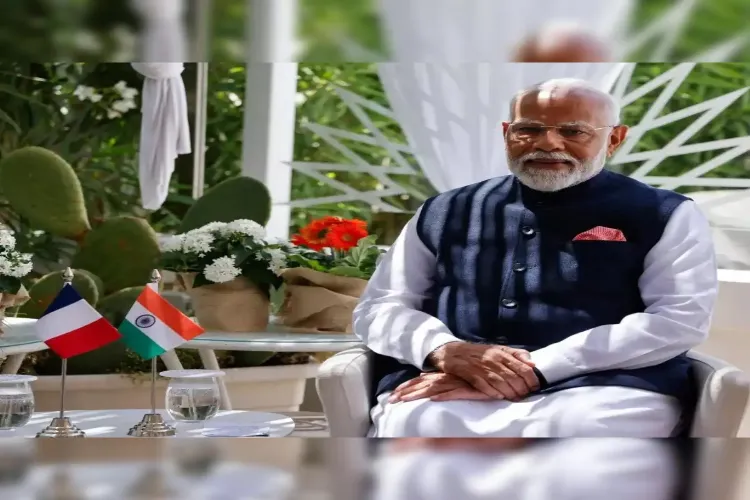
New Delhi
Prime Minister Narendra Modi on Monday paid tributes to Syama Prasad Mookerjee on his death anniversary stating that his invaluable contribution to nation building will always be remembered with reverence.
"Tributes to Dr Shyama Prasad Mookerjee on his Balidan Diwas. He displayed incomparable courage and effort to keep the integrity of the country intact. His invaluable contribution to nation building will always be remembered with reverence," PM Modi said in a post on X.
डॉ. श्यामा प्रसाद मुखर्जी को उनके बलिदान दिवस पर कोटि-कोटि नमन। उन्होंने देश की अखंडता को अक्षुण्ण रखने के लिए अतुलनीय साहस और पुरुषार्थ का परिचय दिया। राष्ट्र निर्माण में उनका अमूल्य योगदान हमेशा श्रद्धापूर्वक याद किया जाएगा।
— Narendra Modi (@narendramodi) June 23, 2025
Syama Prasad Mookerjee was the founder of Bharatiya Jana Sangh, the ideological parent organisation of the BJP.
Union Minister and BJP national president JP Nadda paid floral tribute to Dr Syama Prasad Mookerjee on his death anniversary at the BJP Headquarters in New Delhi. Addressing party workers, Nadda highlighted Mookerjee's contributions to India's unity and questioned the circumstances of his death in 1953.
"Due to ideological differences and the appeasement policy of Dr Jawaharlal Nehru, Dr Syama Prasad Mookerjee resigned from his cabinet, and later he was among the founding members of the Bharatiya Jana Sangh. He opposed the special status given to Jammu and Kashmir," Nadda said.
Born on July 6 1901 in Calcutta, was a multifaceted personality - patriot, educationist, parliamentarian, statesman, and humanitarian. He inherited a legacy of erudition and nationalism from his father, Sir Ashutosh Mookerjee, an esteemed Vice-Chancellor of Calcutta University and Judge of the Calcutta High Court.
This upbringing instilled in him a deep respect for India's cultural heritage and a keen interest in modern scientific thought. Mookerjee's academic brilliance was evident from an early age. After excelling at the Presidency College, he earned degrees in law and literature, including a D.Litt. and LL.D.
His tenure as the youngest Vice-Chancellor of Calcutta University (1934) allowed him to implement his progressive vision for education. He played a pivotal role in promoting Indian languages and fostering intellectual growth, inviting luminaries like Rabindranath Tagore to inspire students. He later joined the Hindu Mahasabha and, in 1937, united non-Congress forces to form a Progressive Coalition government under the leadership of Fazal-ul-Haq, with himself as the Finance Minister. In 1940, he became the acting President of the Hindu Mahasabha and declared complete independence for India as its political goal.
Mookerjee resigned from the Bengal Cabinet in November 1942, protesting against the Governor's interference in administration and criticising provincial autonomy as ineffective. His humanitarian efforts during the Bengal famine of 1943, including relief initiatives, highlighted his commitment to serving society.
Post-Independence, he joined the interim government under Jawaharlal Nehru as Minister for Industry and Supply, where he laid the foundation for India's industrial growth by establishing iconic institutions like the Chittaranjan Locomotive Factory, Sindri Fertilizer Corporation and the Hindustan. However, ideological differences led to his resignation, after which he founded the All-India Bharatiya Jan Sangh (1951) to champion nationalist ideals.
According to the BJP's official website, on the issue of the Delhi pact with Likayat Ali Khan, Mookerjee resigned from the Cabinet on April 6, 1950. Later on October 21, 1951, Mookerjee founded the Bharatiya Jana Sangh in Delhi and became its first president.
READ MORE: Irtiqa Ayoub broke barriers to become the first woman Rugby coach in J&K
Mookerjee went to visit Kashmir in 1953 and was arrested on May 11. He died under detention on June 23, 1953.
